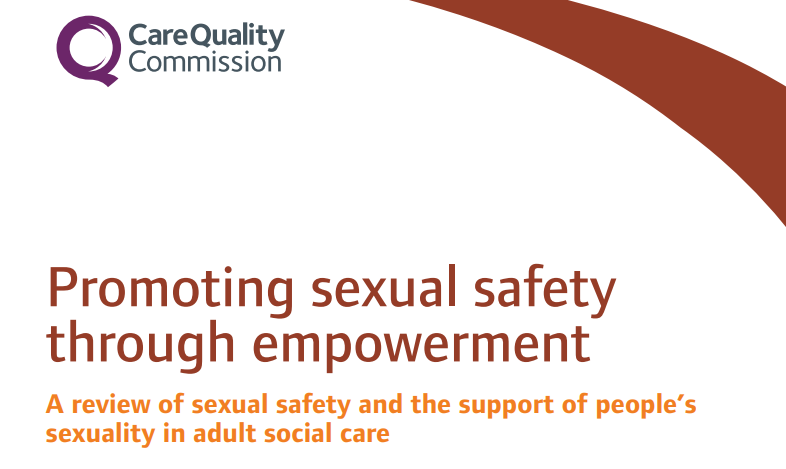
The Care Quality Commissions new report looks at how adult social care services keep people safe from sexual incidents.
It also looks at how services can support them to express their sexuality.
Empower, Support, Protect
Expressing your sexuality is a basic human right. When using adult social care services, people should feel empowered, supported, and protected.
The first step towards protecting and supporting people is through building a culture of openness in which people can talk about sexual safety and sexuality.
In the words of our founder, Ann Craft:
To be a human being is to be a sexual being. Although there may be a range of intensity varying over time, we all have sexual needs, feelings and drives from the most profoundly disabled person to the most able. Although we can shape [and misshape] sexual expression, sexuality is not an optional extra which we can choose to bestow or not according to whether some kind of intelligence test is passed.
- Ann Craft, 1987.
A Taboo Subject
The new CQC report reveals that sex remains a taboo subject. Providers, staff and families are often reluctant to raise issues. This can affect people’s wellbeing. It also mean predatory behaviour can be missed or normalised.
Here are some key findings from the report:
- The lack of awareness of good practice in sexual safety and sexuality can place people at risk of harm.
- We must develop a culture where people and staff feel empowered to talk about sexuality and raise concerns around safety.
- A the regulator, the CQC has a strong role in making sure people using services feel protected and supported.
The report gives detailed recommendations for providers and leaders in adult social care, as well as for ourselves as the regulator.
You can download the full report from the CQC site.
